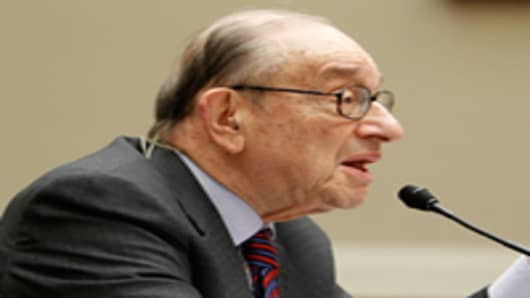Investors could revolt at a moment's notice against high government deficit levels, jeopardizing chances at a recovery and potentially sending interest rates soaring, former Federal Reserve Chairman Alan Greenspan told CNBC.
The former central bank leader — nicknamed "The Maestro" by his supporters — said he worries the current economy could be heading on a path similar to 1979, when the 10-year Treasury note was yielding around 9 percent before surging dramatically, gaining 4 percentage points in just a few months.
"I listen to a lot of what people say that we don't have to worry. We can do it in our own time," Greenspan said in regard to trying to bring down Washington's $1.2 trillion budget gap. "Good luck. The markets have not been told this."
With the economy slowing and the benchmark government note yielding just above 1.50 percent, inflation is hardly a hot topic in the market.
But Greenspan said he worries that economists lack a sense of urgency about getting the deficit spiral under control. Without fiscal discipline, the market can push rates higher rapidly if confidence wanes in the government's ability to get a handle on the problem.
"Almost every economist ... says we'll deal with the long-term problem later, let's get through now on short-term stimulus," he told CNBC's "Squawk Box." "That presupposes something they do not know, namely, will the market tolerate that. And I know of no way you can make that judgment.
"I'm not even sure I'd say necessarily that they're wrong,” Greenspan said. “But to say implicitly that it's a 100 percent probability, that is wrong, and we don't have a plan B."
He said there are two economies, one of which is growing and creating jobs and the other, comprised of "structures and buildings, and they are operating at half of operations."
"Watch what corporate executives do, what proportion of their cash flow they choose to invest in long-term assets," Greenspan said. ""In short, there is a fear of the future, and when you begin to try to disaggregate what's causing that you come up with probably 40 percent of it is the fact that the economy is sagging."




